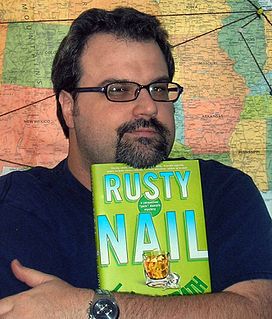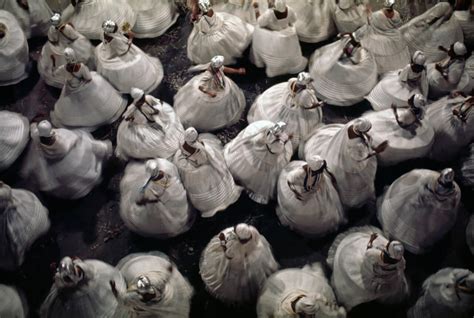A Quote by Scott Kelby
With iPad publishing, you can try new things, experiment, and even launch new magazines without the massive risk normally associated with print publishing. The future is digital, so there will be a digital version of everything we do going forward. There has to be. The cheese has been moved.
Related Quotes
In the future, every human will have a digital model of their body stored in computers. When someone needs a new shoe or a new bra or a new prosthesis or a new brace, s/he'll just fabricate it from the digital model themselves and then the device or article will be delivered to the home without even having to go to a retail store. The shoe, the bra, the brace, it'll be the person's apparel, the person's device, no one else's. It'll be exquisitely comfortable and functional. So this whole notion today where we have sizing to fit across humans is just utterly absurd.
As somebody who's kind of a technophile, I'm interested in how traditional and digital publishing connect. Maybe ten years ago they were seen as antagonists, but now they complement each other. There's data that shows digital sales actually drive print sales. And even the ways in which pictures and words, text and image, interact - we're seeing these books that are very hard to categorize. All of that is very exciting to me.
With the communication internet, whole industries have been disrupted. You're in the publishing industry, you understand that. Before, we had newspapers, magazines - now you're on the web. I'm in book publishing. I don't have to tell you what's happened to us. Television has taken a hit. The music industry. But, thousands of new businesses have emerged on this new communication revolution platform. Not just Google, Facebook, and Twitter. There are thousands of operations. Businesses that are doing the platforms, the apps. They're mining the big data. They're creating the connections.
With the old economics destroyed, organizational forms perfected for industrial production have to be replaced with structures optimized for digital data. It makes increasingly less sense even to talk about a publishing industry, because the core problem publishing solves — the incredible difficulty, complexity, and expense of making something available to the public — has stopped being a problem.
It's true that the young who now flock to script writing, or producing and directing, to fulfill the demands of these new devices would, in an earlier period, have been submitting to magazines and working on their first novels. But even in the midst of all these "digital products," the wonder of it is that there are still so many young writers who continue to believe in the venerable print novel as the corridor to fame and fortune.
I always thought that digital first was a simplistic notion, and I am not even sure quite what it means. It should be stories first. Let's take the Paris story: the New York Times covered it all day, we held nothing back. Everything we learned, we published online. Then, when you approach your print deadline, you have to do two things. You have to polish those stories that are online because print is less forgiving of mistakes. Secondly, in an ideal world, you pick one thing that will feel fresh and compelling to people in the morning when they pick up the print paper.
The digital age is for me in many ways about temporal wounding. It's really messed up our ontological clocks. In the digital economy, everything is archived, catalogued, readily available, and yet nothing really endures. The links are digital encryptions that can and won't be located. That will have to be reassembled over time. It won't be exactly what it was. There will be some slightly altered version. So the book is both an immaterial and material artifact.
It's a weird technique but it works. If you bake tapes at a certain temperature - I think it's 130 degrees - something happened to the magnetic particles, so you can restore them. The key is to do the transfer to digital while it's still warm. If it's done right, the new digital version will actually improve upon the quality of the original. If you do it wrong, though, the tapes will melt!




































